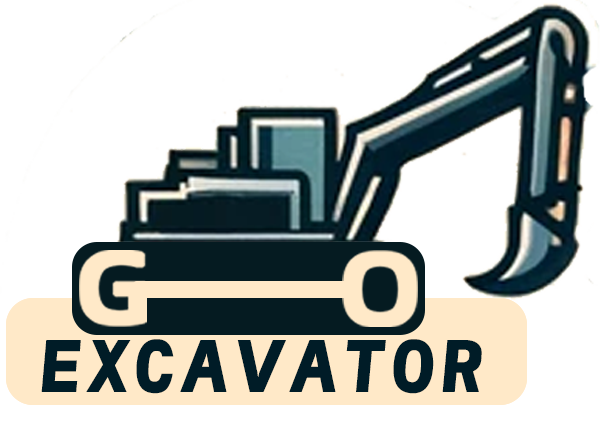
Mini excavators are essential tools in construction, landscaping, and various small-scale projects. Proper maintenance is crucial to extend their lifespan and ensure operational efficiency. This guide provides a detailed overview of the necessary maintenance tasks and the costs involved.
Understanding Mini Excavator Maintenance
1. Importance of Regular Maintenance
Regular maintenance of a mini excavator is vital to prevent unexpected breakdowns and costly repairs. It helps in maintaining the machine’s performance, ensuring safety standards, and minimizing the overall downtime.
2. Maintenance Schedule
Following the manufacturer’s recommended maintenance schedule is crucial. Typically, maintenance tasks are categorized based on service intervals, which can be daily, weekly, monthly, or annually.

Daily Maintenance Checks
1. Engine Oil Level
Check the engine oil level daily to ensure the engine runs smoothly. Low oil levels can lead to engine damage.
2. Hydraulic Fluid and Coolant Levels
Regular checks on hydraulic fluid and coolant levels are necessary to prevent mechanical failures and overheating.
3. General Inspection
Inspect the mini excavator for any visible signs of wear or damage, including hydraulic hoses, buckets, and other attachments. Ensure that all fittings and connections are secure.
Weekly and Monthly Maintenance
1. Air Filters
Clean or replace air filters monthly or more frequently in dusty conditions to ensure optimal engine performance.
2. Fuel System
Inspect the fuel system for leaks and ensure that the fuel filter is clear to prevent contaminants from entering the engine.
3. Track Tension and Undercarriage
Check the tension of the tracks and inspect the undercarriage for debris accumulation, which can lead to premature wear.
Annual Maintenance
1. Engine and Hydraulic System
Annually, or as per the manufacturer’s guidelines, change the engine oil, hydraulic fluid, and filters. This helps in maintaining the efficiency of the engine and hydraulic systems.
2. Battery Maintenance
Check the battery’s charge and clean terminals to ensure reliable starts and prevent electrical failures.
3. Swing Bearing and Swivel Joint
Lubricate and check the swing bearing and swivel joint to ensure smooth operation and prevent excessive wear.
Cost Considerations
1. Routine Maintenance Costs
Routine maintenance costs can vary but typically range from $100 to $500 per year, depending on the frequency and type of services performed. This includes oil changes, hydraulic fluid replacement, and filter changes.
2. Replacement Parts
The cost of replacement parts such as filters, belts, and hydraulic hoses can range from $50 to $300, depending on the part and the brand.
3. Professional Servicing Costs
Professional servicing, which might include deeper engine checks, hydraulic adjustments, and track replacements, can cost between $500 and $2,000 annually. These services are crucial for the longevity of the excavator.
4. Unexpected Repairs
Unexpected repairs due to accidents or severe wear can be costly, sometimes exceeding $5,000 for major issues like engine rebuilds or hydraulic pump failures.
Long-term Maintenance Strategies
1. Operator Training
Training operators on the proper use and daily maintenance checks can significantly reduce wear and tear, extending the machine’s lifespan.
2. Use Genuine Parts
Using genuine parts and recommended fluids extends the life of the mini excavator and ensures that it operates at peak performance.
3. Regularly Update Maintenance Records
Maintaining detailed records of all maintenance activities helps in tracking the health of the equipment and planning future maintenance schedules effectively.
Maintaining a mini excavator requires a dedicated approach to routine checks and adherence to a structured maintenance schedule. Understanding the associated costs helps in budgeting and ensures that the excavator remains a reliable asset. By investing in regular maintenance, you not only ensure operational efficiency but also significantly reduce the likelihood of costly repairs and downtime.
A Comprehensive Guide to Buying a Excavator Second Hand
Purchasing a second-hand excavator can be a cost-effective solution for your construction or landscaping needs. However, buying used machinery comes with its own set of challenges and considerations. This comprehensive guide will walk you through [...]
Comprehensive Guide to Hyundai Mini Excavators: Features and Prices
Mini excavators have become indispensable tools in the construction and landscaping industries. Hyundai Construction Equipment, a global leader in heavy machinery, offers a range of mini excavators known for their reliability, efficiency, and advanced features. [...]
How to Extend the Service Life of Excavator Parts
Excavators are indispensable machines in the construction and mining industries. They perform heavy-duty tasks that demand robust components and meticulous maintenance. Extending the service life of excavator parts not only reduces operational costs but enhances [...]
Kymron Excavators: Innovative, Sustainable Construction Machinery
In the dynamic world of construction and heavy machinery, Kymron has emerged as a game-changer. Specializing in advanced excavator technology, Kymron is redefining industry standards with its commitment to innovation, efficiency, and sustainability. Company Overview [...]
Bulldozer vs. Wheeled Excavator: Which Machine is Better for Moving Soil?
Moving soil is a fundamental task in construction, landscaping, and earthmoving projects. Choosing the right machinery for the job can significantly impact efficiency, cost, and project timelines. Two of the most commonly used machines for [...]
Why Are Small Excavators Favored? A Comprehensive Guide
In the world of construction and landscaping, efficiency and versatility are key. Among the myriad of machinery available, small excavators have risen in popularity. But what makes them so favored? Introduction to Small Excavators Small [...]




